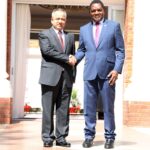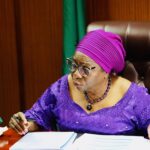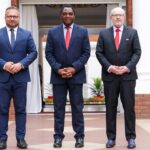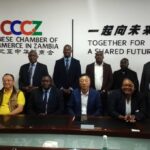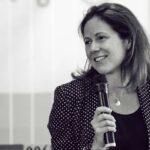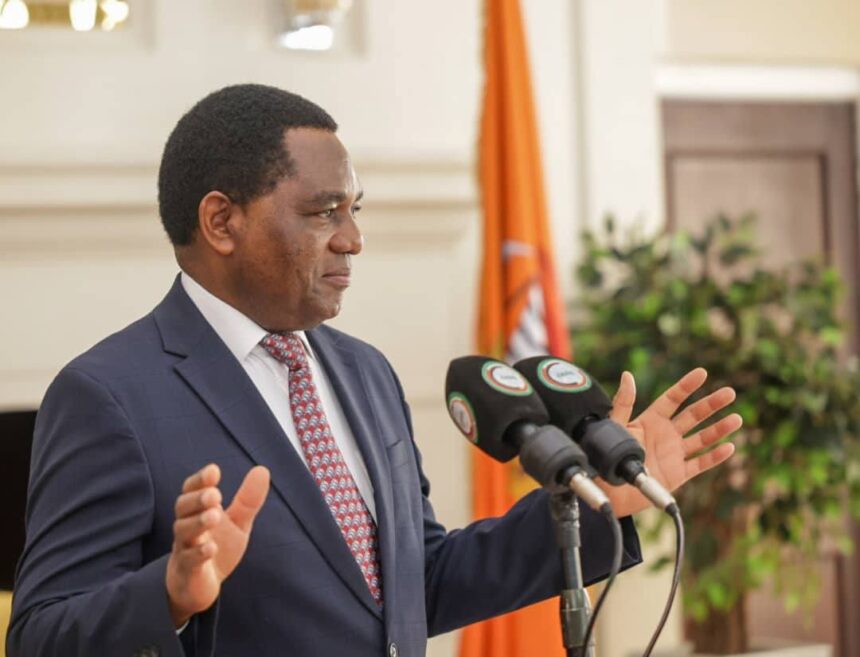In a passionate and forthright address delivered yesterday, President Hakainde Hichilema declared that the days of waiting for foreign handouts must end. Addressing a gathering of policymakers and international partners, the President’s speech may signal a pivotal moment in Zambia’s development journey, as he called for a radical shift away from dependency on foreign aid.
“We’ve been living with this idea that someone else will always come to our rescue,” Hichilema stated, his words resonating with the urgency of a nation grappling with the challenges of economic hardship and environmental crises. “But look around – the rules have changed. The droughts are worse, the money is harder to come by, and the patience of our people is running thin.”
His comments were framed against the backdrop of a nation that has long relied on external support for its survival. Last year’s devastating droughts left nearly a third of Zambia’s population in need of food assistance, while global aid flows have stagnated as donor countries face their own domestic challenges. What was once a steady stream of support has now become erratic, and the President made it clear that waiting for others to step in is no longer an option.
Hichilema’s address was not solely about identifying problems. He presented a bold and actionable vision for Zambia’s future, one that hinges on self-reliance and sustainable development. Central to this vision is a major investment in irrigation and water harvesting projects, designed to address the country’s recurring droughts and improve food security. The government is also focusing on the creation of local industries, with plans to build factories that will produce medicines domestically rather than relying on imports. Moreover, education is being restructured to equip Zambians with the skills to build, create, and innovate within their own economy.
Despite the clear sense of determination in his speech, not everyone is convinced that Zambia can break free from the grip of aid dependency so swiftly. Some economists have raised concerns about the ambitious timelines for achieving food security, particularly within three years. Others have pointed to the country’s substantial debt burden as a potential roadblock to progress. Even UN official Rabab Fatima, while acknowledging the President’s vision, cautioned against replacing aid dependence with an over-reliance on external debt.
However, President Hichilema remained resolute in his stance. “We’re not asking for sympathy,” he declared firmly. “We’re asking our people to roll up their sleeves. The fields won’t irrigate themselves. The clinics won’t staff themselves. This is our country to build.”
The President’s speech was a call to action for Zambia to take control of its destiny, relying on its own resources and the resilience of its people to move the nation forward. The vision of a self-sustaining Zambia, unshackled from the dependence on foreign aid, is ambitious – but it is a vision the President is determined to see realized.
As the evening descended over Lusaka, the question remained: Can Zambia, a country that has long relied on external assistance, learn to feed itself and stand on its own feet? The answer, as the President’s words suggest, will require immense effort, commitment, and a willingness to break free from the past. But one thing is clear – the old way of doing things is no longer viable, and Zambia must chart its own path forward. The real work, as President Hichilema emphasized, begins now.

